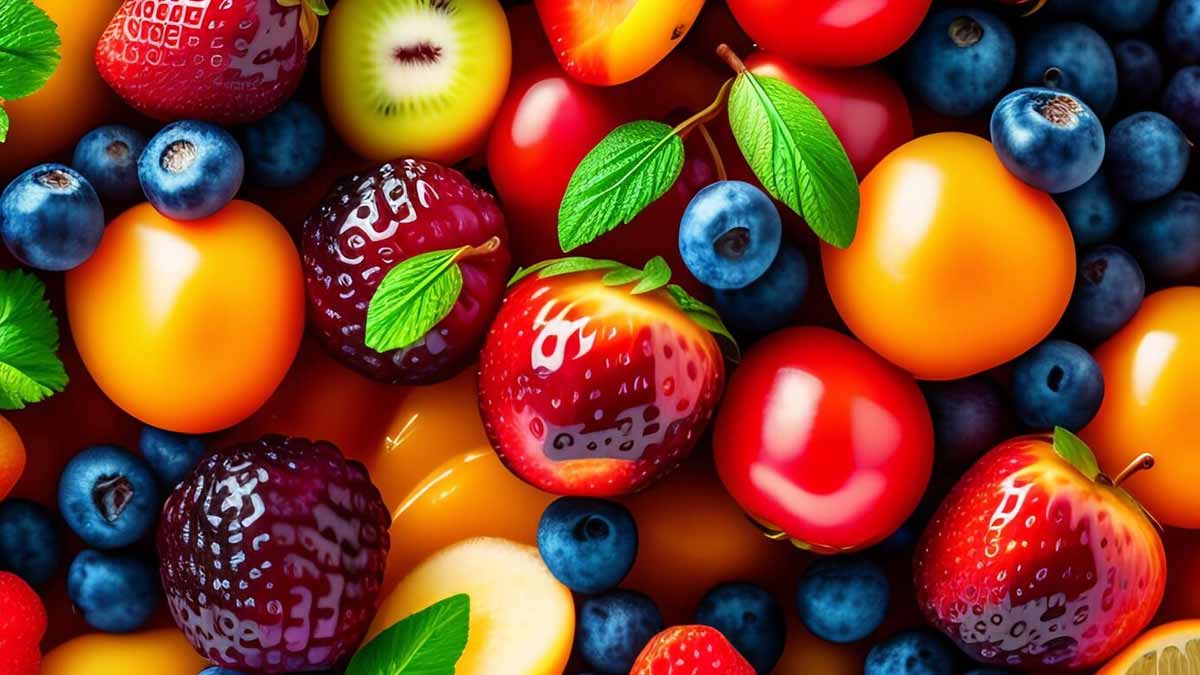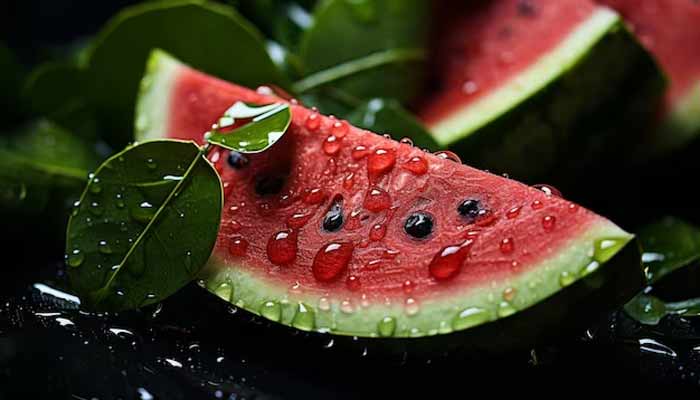
Lycopene, a vibrant red organic pigment, not only lends its appealing colour to various fruits and vegetables but also boasts a range of health benefits that make it a nutritional powerhouse.
A study published in the Annual Reviews of Food Science and Technology (ARFST) stated that lycopene is a non-provitamin A carotenoid that has a positive impact on lowering the risk of cancer and cardiovascular diseases.
Table of Content:-
Here are some of its health benefits and food sources as shared by the ARFST study.
Health Benefits Of Lycopene

Lycopene belongs to the carotenoid family, which includes other well-known compounds like beta-carotene. Here are some old its health benefits:
Antioxidant Powerhouse
Unlike some carotenoids, lycopene does not convert into vitamin A in the body. Instead, it stands out for its individual and uniquely potent antioxidant properties.
It can help to neutralise harmful free radicals in the body thus protecting cells from oxidative stress and reducing the risk of chronic diseases.
Heart Health
The study also suggested that a diet rich in lycopene may contribute to heart health by reducing cholesterol levels and improving blood vessel function.
Additionally, certain lycopene rich foods have exhibited a reduction in platelet aggregation, which ultimately lowers the risk of poor heart health.
Also Read: Can Tomatoes Help Reduce Cholesterol Levels? Doctor Answers With Other Ways To Do So
Cancer Prevention
Lycopene has also been linked to a lower risk of certain cancers, particularly prostate cancer. Its antioxidant properties play a role in preventing damage to DNA, which can contribute to cancer development.
Skin Protection
Lycopene may contribute to skin health by protecting against UV radiation and promoting collagen production as well, which helps maintain skin elasticity.
Eye Health
Some research indicates that lycopene may be beneficial for eye health, potentially reducing the risk of age-related macular degeneration.
Foods Sources Of Lycopene

Lycopene is a naturally occurring pigment that gives certain fruits and vegetables their distinctive red and pink hues. Some of its major food sources include:
- Tomatoes: Tomatoes are a primary source of lycopene, whether fresh or in processed forms like tomato sauce and ketchup.
- Watermelon: The juicy red flesh of watermelon is not only refreshing but also packed with lycopene.
- Guava: Guava, especially pink and red varieties, contains a significant amount of lycopene.
- Pink Grapefruit: The pink hue in grapefruit is indicative of its lycopene content, making it a citrus fruit with added health benefits.
- Papaya: The vibrant hues of papaya are afforded to it by lycopene.
- Red Bell Peppers: While not as high in lycopene as some other foods, red bell peppers still contribute to your overall intake of this beneficial compound.
Also Read: Should You Drink Water After Eating Watermelon? Expert Answers
From safeguarding your heart, saving you from cancer, to protecting your eyes, the benefits of lycopene make it a nutrient worth prioritising in your daily meals. So, next time you savor a tomato salad or indulge in a slice of watermelon, know that you're not just enjoying a tasty treat – you're nourishing your body with the powerful benefits of lycopene.
Also watch this video
Read Next
Not All Carbohydrates Are Bad For People With Diabetes And Other Carb-Related Myths Debunked
How we keep this article up to date:
We work with experts and keep a close eye on the latest in health and wellness. Whenever there is a new research or helpful information, we update our articles with accurate and useful advice.
Current Version